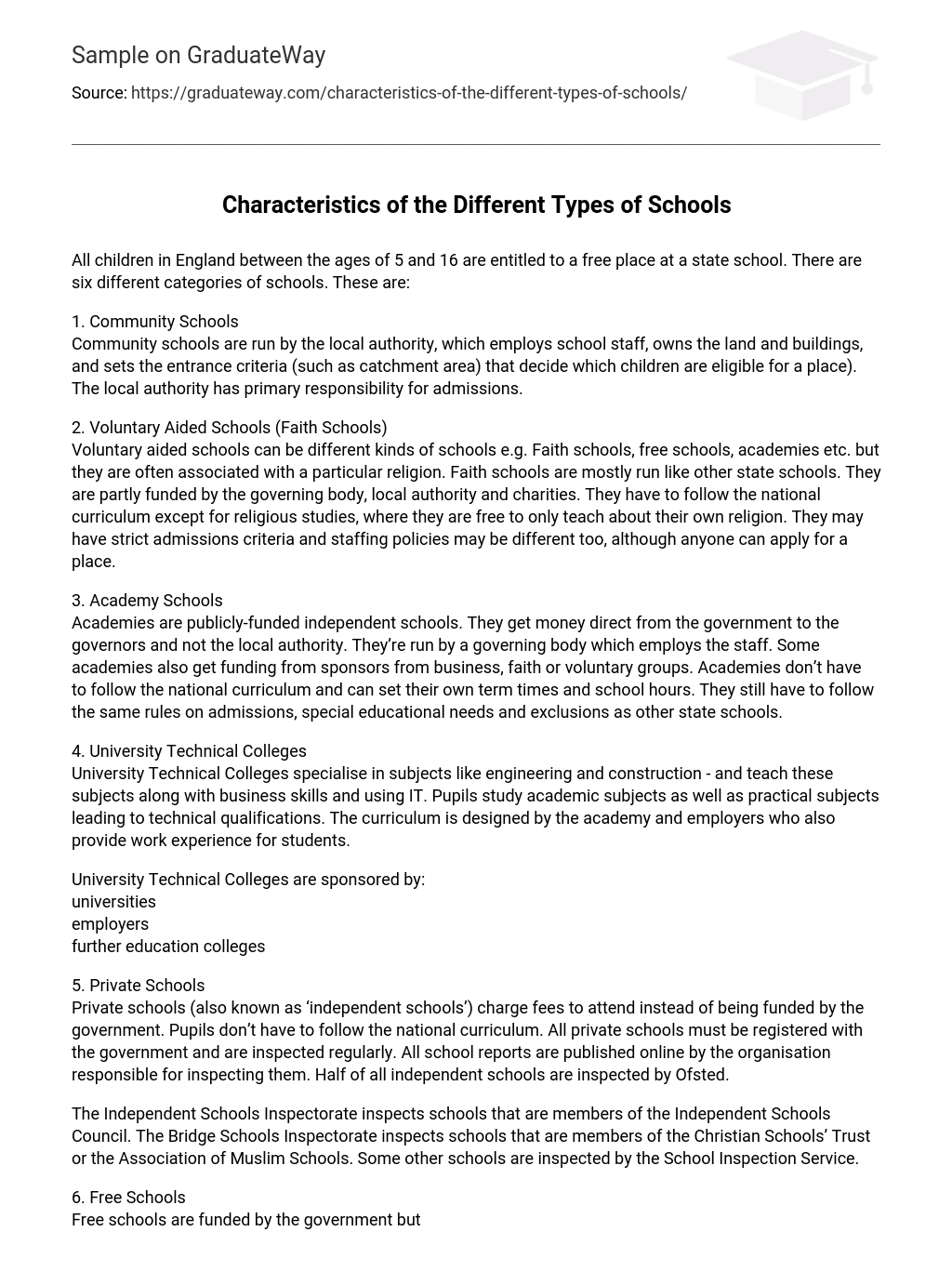All children in England between the ages of 5 and 16 are entitled to a free place at a state school. There are six different categories of schools. These are:
1. Community Schools
Community schools are run by the local authority, which employs school staff, owns the land and buildings, and sets the entrance criteria (such as catchment area) that decide which children are eligible for a place). The local authority has primary responsibility for admissions.
2. Voluntary Aided Schools (Faith Schools)
Voluntary aided schools can be different kinds of schools e.g. Faith schools, free schools, academies etc. but they are often associated with a particular religion. Faith schools are mostly run like other state schools. They are partly funded by the governing body, local authority and charities. They have to follow the national curriculum except for religious studies, where they are free to only teach about their own religion. They may have strict admissions criteria and staffing policies may be different too, although anyone can apply for a place.
3. Academy Schools
Academies are publicly-funded independent schools. They get money direct from the government to the governors and not the local authority. They’re run by a governing body which employs the staff. Some academies also get funding from sponsors from business, faith or voluntary groups. Academies don’t have to follow the national curriculum and can set their own term times and school hours. They still have to follow the same rules on admissions, special educational needs and exclusions as other state schools.
4. University Technical Colleges
University Technical Colleges specialise in subjects like engineering and construction – and teach these subjects along with business skills and using IT. Pupils study academic subjects as well as practical subjects leading to technical qualifications. The curriculum is designed by the academy and employers who also provide work experience for students.
University Technical Colleges are sponsored by:
universities
employers
further education colleges
5. Private Schools
Private schools (also known as ‘independent schools’) charge fees to attend instead of being funded by the government. Pupils don’t have to follow the national curriculum. All private schools must be registered with the government and are inspected regularly. All school reports are published online by the organisation responsible for inspecting them. Half of all independent schools are inspected by Ofsted.
The Independent Schools Inspectorate inspects schools that are members of the Independent Schools Council. The Bridge Schools Inspectorate inspects schools that are members of the Christian Schools’ Trust or the Association of Muslim Schools. Some other schools are inspected by the School Inspection Service.
6. Free Schools
Free schools are funded by the government but aren’t run by the local authority. They have more control over how they do things. They’re ‘all-ability’ schools, so can’t use academic selection processes. Free schools can set their own pay and conditions for staff, change the length of school terms and the school day and they don’t have to follow the national curriculum. Free schools are run on a not-for-profit basis, and can be set up by groups like: charities
universities
independent schools
community and faith groups
teachers
parents
businesses





